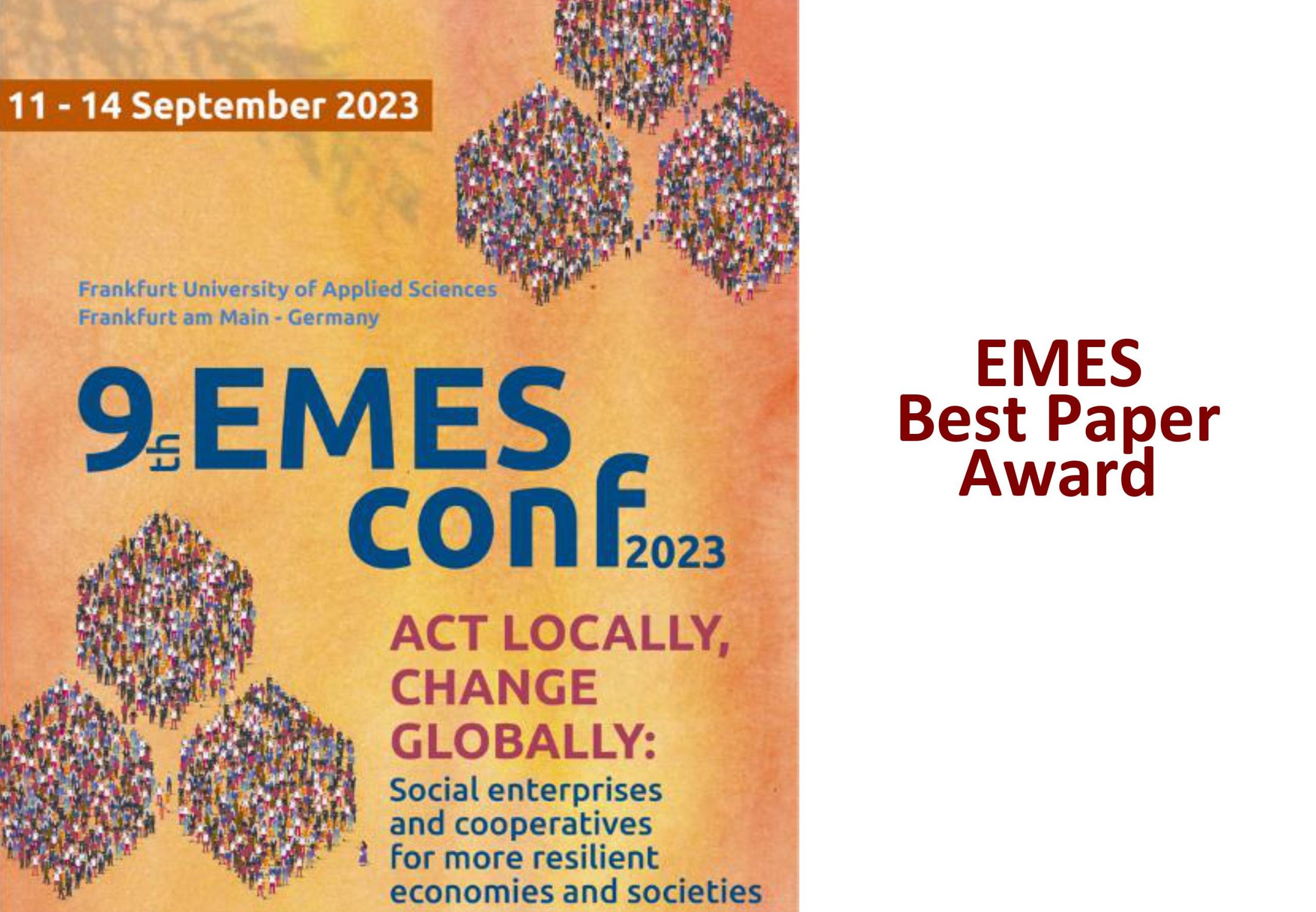The EMES International Research Network traditionally awards the best papers at each conference. For this 9th edition, two papers were awarded in two distinct categories: “Best Conference Paper” in the researcher category and the “Best PhD Paper”.
The paper “Ownership Structure over the Business Cycle: Evidence from France” by Shervin Karimi, Simon Cornee, and Veronique Thelen from The Center for Research in Economics and Management (CREM) of the University of Rennes (France) was selected as the “Best Conference Paper”. This paper is now available as part of the EMES Selected Conference Papers.
We asked Shervin Karimi and his colleagues to share insights from their research and reactions to the Award with us.
Could you summarize this paper and its main findings and contributions to the goals sought by the Award?
This paper provides new evidence on the comparative behaviour of the third sector and the for-profit sector over the business cycle. Third-sector organizations, typically made up of non-profit organizations and cooperatives, have an ownership structure distinct from for-profit firms. However, little is known about the third sector’s sensitivity to economic fluctuations. Using a novel French dataset over the 2000-2019 period that allows us to differentiate the two sectors, we examine their respective behaviour in terms of the number of establishments and employment. Our results show that the cyclical sensitivity of the third sector and its two main subgroups are systematically lower than the for-profit sector. These patterns are independent of the business cycle and the sector size variable used. Our analysis essentially shows that organizations with democratic governance and a limited profit distribution constraint have a lower sensitivity to changes in economic conditions.
Our findings are in line with the theme of the 9th EMES conference as they indicate that both non-profit organizations and cooperatives prove to be less affected by economic cycles than conventional firms. By acting locally, third-sector organizations help improve resilience and mitigate the undesirable consequences of macroeconomic shocks.
Why did you decide to undertake the research described in the paper, and what was the process?
Third-sector organizations, such as non-profits and cooperatives, are mainly distinguished from conventional firms based on their ownership structure and governance principles. We started our research from the intuition that the constraint of limited profit distribution and democratic governance could lead to different objectives from those of standard organizations and, therefore, to distinctive responses to macroeconomic conditions. We also realized that the sensitivity of third-sector organizations, taken as a whole, to business cycle fluctuations had seldom been studied in a comparative approach, both theoretically and empirically, despite the interest of policymakers in finding solutions to the perverse socioeconomic consequences of recessions. We contributed to addressing this research question in the French context, exploiting an open-source dataset recently released by the French social security system. By using panel data econometrics, we were able to shed new light on the link between ownership structure and resilience to economic fluctuations, which contributes to a better understanding of the behaviour of third-sector organizations.
How do you think such an Award can contribute to advancing SE scholarship?
The EMES conference and this award confirm that SEs are a vibrant and inspiring field of research for finding solutions at various levels to contemporary socio-ecological challenges. In our case, such an award complements and advances existing SE scholarship in two ways. While SE scholarship tends to focus on the (micro/meso) organizational level, our work highlights the value of considering a more (macro) comparative approach on governance and ownership structure topics. From a methodological point of view, our econometric approach also helps promote methodological pluralism—alongside qualitative fieldwork—in pursuing a solid empirical basis for the study of SEs.
The two winning papers (this one and the one in the PhD category) were selected among 170 papers presented (Full Program).
We encourage you to contact the authors directly if you want to comment on this work or share your related research.
Click here to download the full version of the EMES Selected Conference papers.

